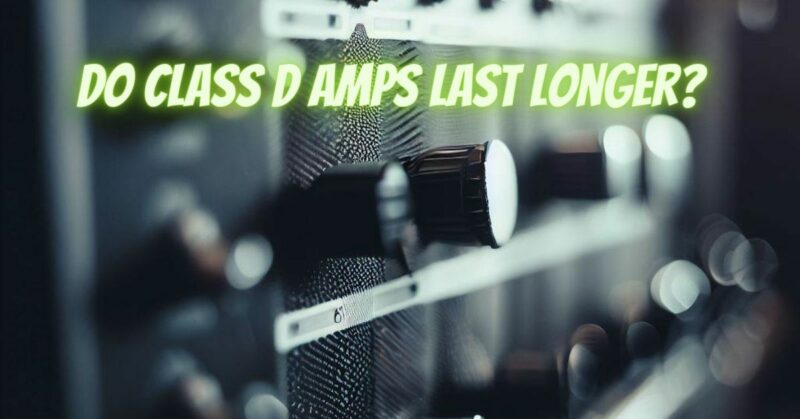In the world of audio amplification, the question of longevity is of paramount importance to both enthusiasts and professionals. Among the various types of amplifiers, Class D amplifiers have gained attention for their efficiency and compact size. A commonly held belief is that Class D amplifiers inherently last longer due to their reduced heat generation. However, it’s important to delve deeper into this topic to understand whether Class D amplifiers truly have a superior lifespan compared to other amplifier classes. In this article, we will explore the factors that influence amplifier longevity and address whether Class D amplifiers do indeed have an advantage in this regard.
Understanding Amplifier Longevity:
Amplifier longevity is influenced by a combination of factors, each contributing to the overall lifespan of the device. While heat dissipation is a significant consideration, it’s just one piece of the puzzle.
Heat Dissipation: Class D amplifiers are often associated with reduced heat generation due to their efficient switching operation. This efficiency minimizes power loss as heat, potentially leading to less stress on components over time. In contrast, traditional analog amplifiers such as Class A, B, and AB amplifiers can generate significant amounts of heat, which may contribute to component degradation and shorter lifespans if not managed properly.
Component Quality: Regardless of amplifier class, the quality of components used in the amplifier’s construction greatly impacts its longevity. High-quality components, proper circuit design, and robust manufacturing practices are essential for ensuring a longer lifespan. This holds true for both Class D and analog amplifiers.
Environmental Factors: The operating environment of an amplifier also plays a crucial role in determining how long it will last. Exposure to extreme temperatures, humidity, dust, and other external factors can all contribute to wear and tear on components, regardless of the amplifier class.
Usage Patterns: The way an amplifier is used and maintained significantly affects its lifespan. Factors such as average volume levels, duty cycle, and proper maintenance (such as cleaning and regular inspections) can all impact how long an amplifier remains operational.
Advantages of Class D Amplifiers:
While it’s not accurate to claim that Class D amplifiers inherently last longer, they do offer some advantages that can indirectly contribute to longevity:
- Efficiency and Heat Dissipation: The efficiency of Class D amplifiers leads to less power loss as heat, reducing the stress on components. This can potentially extend the lifespan of the amplifier if it’s operated within its design parameters.
- Compact Size: The smaller form factor of Class D amplifiers often means better airflow and less constrained heat dissipation. This can contribute to a cooler operating temperature, which is generally beneficial for component lifespan.
- Adaptability: Class D amplifiers can be designed for various power levels and applications, allowing them to be optimized for specific use cases. This flexibility enables designers to create amplifiers that match the intended usage, potentially extending the lifespan by minimizing unnecessary stress.
The Verdict on Longevity:
While Class D amplifiers offer advantages in terms of heat dissipation and efficiency, it’s crucial to remember that longevity is a complex interplay of factors. The myth that Class D amplifiers inherently last longer is not entirely accurate. Both Class D and analog amplifiers can have long lifespans if designed, constructed, and operated correctly. High-quality components, proper circuit design, and responsible usage are key factors that determine how long any amplifier will last.
Ultimately, the choice between amplifier classes should be based on a thorough assessment of your audio needs and priorities, rather than a presumption of longevity. Whether you opt for a Class D or analog amplifier, investing in quality and responsible operation will ensure that your amplifier serves you well for years to come.


